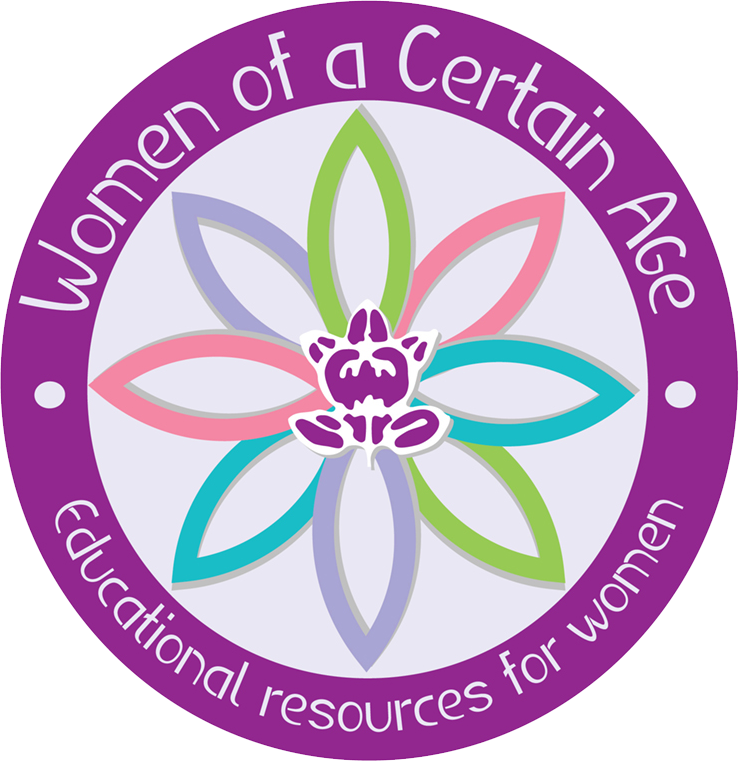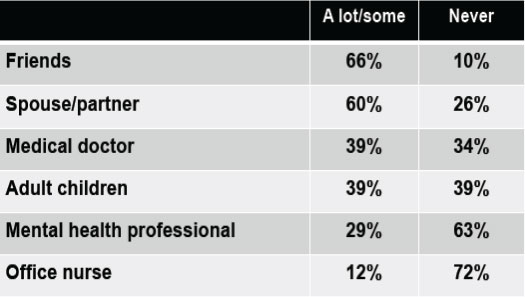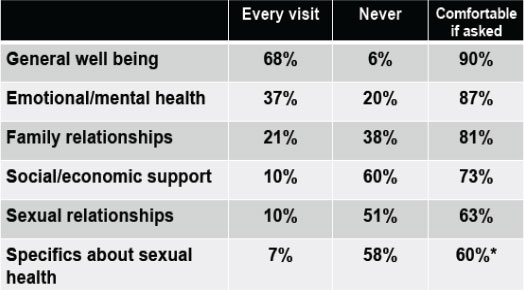Mature Women and Their Healthcare Provider Interactions
Survey Results
WOACA is proud to present the final results of the ongoing survey of women over the age of 50; the “Mature Women and Their Healthcare Provider Interactions” survey.
This survey was created for WOACA by MNR Analytics, Portland, OR, and designed by Rebecca Block, PhD. It was partially funded by generous grants from Central Drug, Portland, Oregon.
We also sincerely thank the hundreds of women who have taken the time to complete the survey. It is their voice that we would like to share in this post.
This summary includes the responses of 404 women. As more women complete the survey, their responses will be included. For those with a science background, the group of women who responded were a “cross-sectional, non-representative, non-comparative” sample. In other words, it is possible that the women who completed the survey may not represent the experiences of other women over the age of 50 living in different circumstances, different regions of the country and coming from different cultural backgrounds.
The women who have responded are: mostly white (83%), mostly well-educated (91% have some post-high school education), mostly heterosexual (92%), mostly between the ages of 50 and 64 (77%), have a regular primary care clinician (90%) and most have some form of private health insurance (71%). In addition, many are working (56% work full-time) and most have access to a computer (over 90% of surveys were completed online).
The following tables display some of the most interesting results from the survey.
Table 1. When asked with whom they share sensitive health information, a significant proportion (14%) revealed difficulty sharing this information with their clinicians. In addition, many reported not sharing this kind of information with family or friends, either. The low numbers for “mental health professional” suggests, as other studies have shown, that older women have difficulty accessing professional mental health counseling when they need it.
Table 1.
Table 2. When asked who they could rely on for emotional support when dealing with health problems, a spouse/partner and close friends topped the list; medical professionals are not viewed as a source of emotional support. Adult children provide support for fewer than half of our respondents and friends appear to play the largest role in providing emotional support.
Table 2.
Table 3. When asked who they could rely on for sexual well-being support a spouse/partner topped the list but many (35%) never discussed sexual health with an intimate partner and even less often with friends or other family members. Patients, as has been suggested in many other studies, do not see clinical professionals as a source of support for these health concerns of the most private and sensitive nature.
Table 3.
Table 4. When asked about the health-related issues they discussed with their clinicians many women reported that their clinicians asked about general well being at every visit. Those numbers change significantly when more specific health-relevant issues are involved. Fewer than half the group had ever been asked about their social/economic support or sexual relationships. Most said they would be comfortable discussing problems in these areas if asked.
Table 4.
Table 5. When asked where they go for information about health issues most said their information comes from their healthcare clinician, health-related web sites and print materials. Just over half of the group got information from friends or family.
Table 5.
The results of this survey support the observations that Jacki Gethner has made through thousands of conversations with women of a certain age over the last three decades. If you have not taken the survey, please add your voice to the 450-plus women who have contributed.
This survey is the first step in WOACA’s renewed commitment to understanding the challenges and barriers older women face as they navigate the health system and negotiate their care with their clinicians. WOACA will continue to add insights and knowledge through additional research in the coming years. WOACA will also use this information to inform patients, clinical care teams and the general community about health issues relevant to women over the age of 50.
Based on our focus group, which was highly successful, please look forward to participating in an updated survey in how women feel about their healthcare providers.
Have questions? Please contact me:





